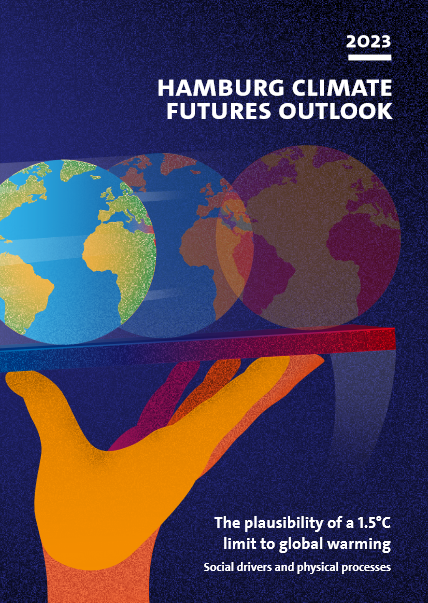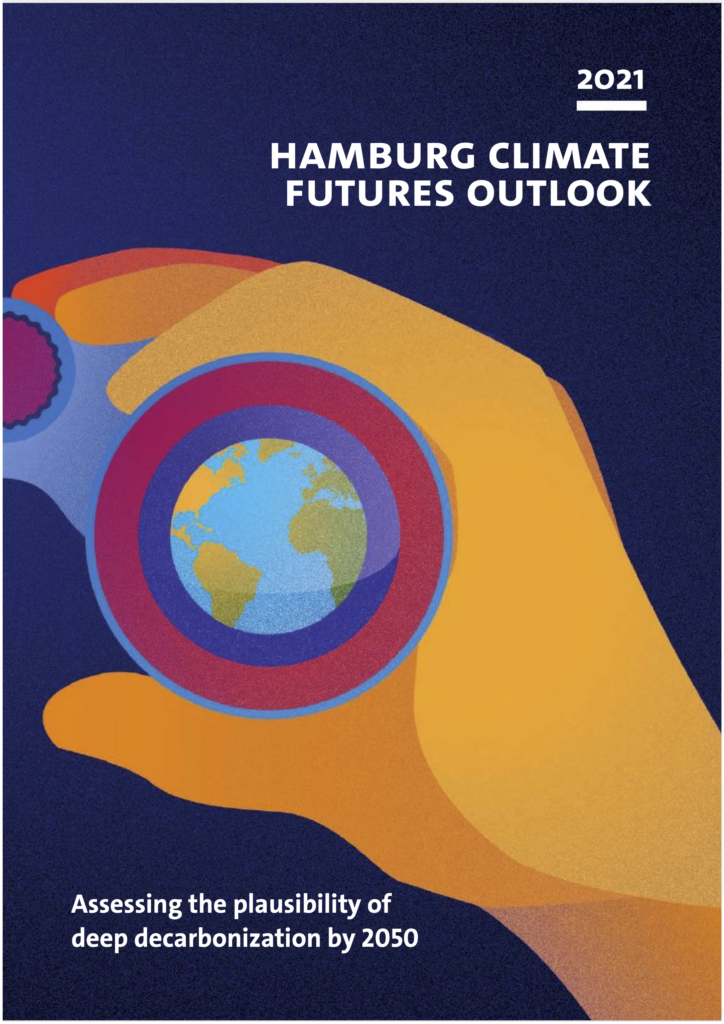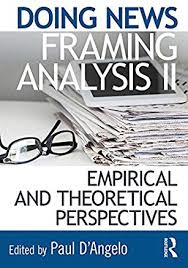Brüggemann, M. (2024). Tackling Discoursive Polarization: Welcome Radical Ideas but Not Aggression. In F. Hanusch & A. Katsman (Eds.): Seeds for Democratic Futures. transcript Verlag.
Category: Book chapters
Negotiating the Norms of Science Communication: Blogs by climate scientists and journalists
Abstract
The traditional norms of scientists and journalists in science communication are being challenged in post-normal situations when values are involved, uncertainties are high, and there is a need for political action. Animated meta-discourses, defined as reflections and discussions of norms and their practices, indicate a renegotiation of the norms governing science communication. This study explores if and how these norms are being renegotiated among journalists and scientists – focusing on climate research as a prime example of post-normal science. We focus on high-profile blogs by eminent scientists and science journalists to analyze which norms are problematized or defended using a qualitative content analysis of six climate change blogs from Germany, the UK, and the USA (n=3808 blog posts from 196 authors with n=439 posts on meta-discourses). The results show that the traditional norm of impartiality is
being challenged in both science and journalism, especially as far as the journalistic understanding of “balance” and the scientific ideal of value-free science are concerned. At the same time, other norms become more important both among scientists and journalists: transparency and contextualization of information. Discourses about advocacy reveal that the norm is highly contested and that certain types of advocacy are legitimized in certain situations.
Lörcher, I., Walter, S., & Brüggemann, M. (2024). Negotiating the norms of science communication: Blogs by climate scientists and journalists. In A. Carvalho & T. R. Peterson (Eds.), Environmental Communication. De Gruyter.
Balance as Bias von Max und Jules Boykoff
Brüggemann, Michael (2022): Balance as Bias von Max und Jules Boykoff. In: Youssef Ibrahim und Simone Rödder (Eds.): Schlüsselwerke der sozialwissenschaftlichen Klimaforschung. Bielefeld: transcript (Soziologie der Nachhaltigkeit, Band 2), pp. 45–49.
Transformative Journalisms: How the ecological crisis is transforming journalism
Abstract:
Growing awareness of global ecological crises has provoked a set of new practices in journalism that we suggest labelling transformative journalisms. The term encompasses a diversity of new role conceptions and practices that converge around an explicit and transparent commitment to contribute to the social-ecological transformation of societies by doing journalism. It is thus a form of advocacy journalism that is special in being dedicated to the most common of common goods, preserving the eco-systems and natural resources of the planet. Transformative journalism challenges some aspects of objectivity, such as the idea of the neutral, distanced observer. Instead, it emphasizes the elements of relevant and factually correct coverage as well as values such as transparency about values and moderating the debates that enable society to develop more sustainable ways of life. While the tension between the poles of being a critical, independent observer and sharing a mission of ecological transformation is the source of criticism by proponents of more traditional role conceptions, we also see this tension as a productive source for creativity, complementing traditional journalism with new forms of content, production, and interactions audiences as well as increased awareness of the ecological footprint of doing journalism.
Brüggemann, M. / Frech, J. / Schäfer, T. (2022): Transformative journalisms: How the ecological crisis is transforming journalism. in: Hansen, A. (Ed.), The Routledge Handbook of Environment and Communication. 2nd Edition. Routledge, New York.
Hamburg Climate Futures Outlook 2023: the Plausibility of a 1.5°C Limit to Global Warming

Guenther, L. / Brüggemann, M. / Kleinen-von Königslöw, K. (2023): Media. In: Engels, A. et. al. (eds): Hamburg climate futures outlook 2023 – the plausibility of a 1.5°C limit to global warming: social drivers and physical processes. Hamburg, Universität Hamburg, 128-133. doi:10.1080/17524032.2024.2305827.
Zwischen Unterlassung und ökologischer Verantwortung: Klimajournalismus in Zeiten kognitiver Dissonanz
Abstract
Mehr als eine Dekade der Nicht-Kommunikation, der Untätigkeit und des Verdrängens liegt hinter uns. Heiße, trockene Sommer, grenzüberschreitende Jugendproteste und eine ‚Jahrhundertflut‘ im Westen Deutschlands haben den Klimawandel in das öffentliche Bewusstsein gedrängt und gezeigt: Klimawandel passiert hier vor Ort, vor der Haustür jedes und jeder Einzelnen. Expertinnen und Experten weltweit sind sich einig: Eine sofortige Reduktion von Emissionen ist längst überfällig. Vor und neben dem Handeln steht aber eine Verständigung über Probleme, Verantwortlichkeiten, angemessene Reaktionen und Ziele im Klimaschutz. Und dafür ist Klimakommunikation so wichtig, verstanden als das öffentliche Selbstgespräch der Gesellschaft über das Thema Klimawandel. Wir zeichnen die großen Linien dieses Gesprächs nach, werfen einen Blick in Richtung USA, diskutieren blinde Flecken des Journalismus und erklären, wie der Berufsstand seiner ökologischen Verantwortung gerecht werden könnte.
Brüggemann, Michael; Jörges, Susan (2022): Zwischen Unterlassung und ökologischer Verantwortung: Klimajournalismus in Zeiten kognitiver Dissonanz. In KLIMA vor acht (Ed.): Medien in der Klima-Krise. München: Oekom, pp. 27–44.
Plädoyer für eine bescheidene Weltverbesserung: transformativer Journalismus und transformative Kommunikationswissenschaft
Abstract
Die globalen ökologischen Krisen stellen Journalismus und Kommunikationswissenschaft vor die Frage: Wie tragen wir zur ökologischen Transformation unserer Gesellschaft bei? Beide Berufsstände verstecken sich hinter dem Dogma distanzierter und neutraler Weltbeobachtung und vermeiden so die Frage nach ihrem gesellschaftlich-ökologischen Fußabdruck: Der besteht nicht nur in Flugreisen und Materialverbrauch, sondern auch in der Entscheidung für bestimmte Forschungsfragen, für oder gegen eine Einmischung in die Debatten über die ökologische Transformation unserer Gesellschaft. Transformative Kommunikationswissenschaft könnte diesen Debatten Reflexivität zurückspielen, kritisch, lösungsorientiert und stets bereit, die eigene Bias mitzudenken und eigene Fehler zu korrigieren.
Brüggemann, Michael (2022): Plädoyer für eine bescheidene Weltverbesserung. Transformativer Journalismus und transformative Kommunikationswissenschaft. In Communicatio Socialis 55 (2), 176–183. DOI: 10.5771/0010-3497-2022-2-176.
Klimawandel und Klimapolitik bleiben trotz COVID-19-Pandemie etablierte Themen: Medienrezeption während der UN-Klimagipfel 2015, 2018, 2019 und 2021
Abstract
Der Klimawandel ist seit Jahrzehnten Thema medialer Berichterstattung. Im Rahmen der regelmäßigen Befragungen im Projekt “Down2Earth” an der Universität Hamburg wurde bereits in der Vergangenheit in Media Perspektiven mittels Mediennutzungsdaten beschrieben, wie die gesellschaftliche Relevanz des Themas in Deutschland seit 2015 deutlich anstieg. Durch die Pandemie kam es jedoch zu Veränderungen, die sich auch auf die Themenwahrnehmung der Mediennutzenden zum Klimawandel ausgewirkt haben. Deshalb wurden die Befragungsdaten um einen weiteren Zeitpunkt (November 2021) erweitert, der die beschriebenen Trends während einer globalen Pandemie neu einordnet.
Guenther, Lars; Reif, Anne; De Silva-Schmidt, Fenja; Brüggemann, Michael (2022): Klimawandel und Klimapolitik bleiben trotz COVID-19-Pandemie etablierte Themen. Medienrezeption während der UN-Klimagipfel 2015, 2018, 2019 und 2021 (4), pp. 192–202.
Hamburg Climate Futures Outlook 2021: Assessing the plausibility of deep decarbonization by 2050

Guenther, L.; Brüggemann, M. (2021): Journalism. In: Stammer, D. et al. (eds): Hamburg Climate Futures Outlook 2021. Assessing the plausibility of deep decarbonization by 2050. Hamburg, 105- 108.
Defragmenting News Framing Research: Reconciling Generic and Issue-Specific Frames (2018)
Abstract
In our view, the best way to defragment news framing analysis is to synthesize related ideas and framing concepts and theorize the relationships between these concepts rather than aim for a unified conceptual definition (or none at all) or a single set of measurements. We focus here on one particular distinction, between generic and issue- specific frames (de Vreese, 2005), and hold that they should not be viewed as two alternative conceptualizations of frames but as complementary layers of framing that are situated on different levels of abstraction. The thesis of our chapter is that both of these types of frames are useful, and that a comprehensive understanding of the dynamics of public debates can be gained by combining the analysis of issue- specific and generic frames. This would be one important step toward defragmenting news framing analysis. We bolster this thesis by looking at a small but growing literature that examines what we call “hybrid frames” in news stories. We argue that frames in texts, more often than not, reflect both generic and issue- specific framing practices. Identifying the hybrid nature of these frames is a challenge that is not sufficiently tackled by current research.

Brüggemann, Michael; D’Angelo, Paul (2018): Defragmenting News Framing Research: Reconciling Generic and Issue-Specific Frames. In Paul D’Angelo (Ed.): Doing news framing analysis II. Empirical and theoretical perspectives. New York, NY: Routledge. Available online at https://doi.org/10.4324/9781315642239.
